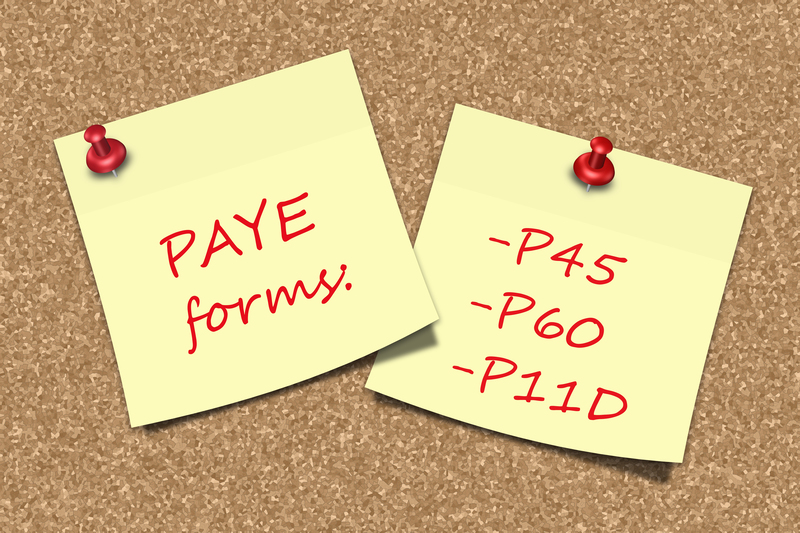Understanding the Challenges of Piano Moving: Trust the Pros
Posted on 26/05/2025
Understanding the Challenges of Piano Moving: Trust the Pros
Moving a piano is an intricate task that requires skill, experience, and the right equipment. While some household items can be easily packed up and transported, piano relocation is in a league of its own. Many people underestimate the complexities involved in transporting pianos, only to discover the risks and challenges after it's too late. In this comprehensive guide, we explore the unique difficulties of moving pianos and explain why hiring professional movers is the best decision for both your instrument and your peace of mind.

Why Pianos Are So Challenging to Move
Pianos are beautifully engineered instruments, prized for their musicality and grandeur. But these same qualities make them one of the most complicated items to move:
- Weight and Size: Even a small upright piano can weigh over 300 pounds, while concert grand pianos can exceed 1,200 pounds.
- Delicate Mechanisms: Pianos have thousands of moving parts, many of them fragile, including strings, hammers, and a sensitive soundboard.
- Odd Shapes: The unusual shapes and dimensions of pianos require custom solutions for lifting and maneuvering.
- High Value: Pianos are often expensive, both in terms of purchase price and sentimental value.
- Risk of Injury: Attempting to move a piano without training can lead to injuries or even permanent damage to the instrument.
Trusting professional piano movers means you avoid these pitfalls and ensure that your cherished instrument is protected from start to finish.
The Different Types of Pianos and Their Moving Requirements
Understanding the nuances between piano types helps highlight why expert piano relocation services are necessary. Let's break down the major categories and their unique moving challenges:
Upright Pianos
- Vertical pianos, including spinets, consoles, and studios, have all their components stacked vertically.
- They usually weigh between 300-900 pounds.
- The bulk of their weight is located in the upper half, making them top-heavy and prone to tipping.
Despite being "smaller," upright pianos demand careful attention in order to prevent tipping and damaging floors or doorways during transport.
Grand Pianos
- Grand pianos (baby, parlor, and concert) feature extended frames and horizontal strings.
- These can be up to 9 feet long and require disassembly of legs, lyre, and pedals for safe removal.
- The inherently awkward size and advanced assembly demands skills only experienced piano movers possess.
Digital and Player Pianos
- While lighter and simpler than traditional pianos, digital and player pianos may have delicate electronics and internal components drilled into place.
- Improper moving can cause electrical damage or render the instrument inoperable.
Each piano type presents distinct challenges, reinforcing the value of entrusting a professional with the move.
Common Challenges Encountered During Piano Relocation
Every move is unique, but several recurring obstacles make piano transportation especially daunting:
- Navigating Narrow Spaces: Tight staircases, narrow hallways, and small doorways are frequent obstacles. Without the right technique, pianos can easily be dinged, scratched, or even stuck.
- Stairs and Elevator Restrictions: Carrying a piano up or down stairs, or into elevators, multiplies complexity. Handling the immense weight and bulk while preserving the instrument's integrity is no trivial feat.
- Uneven Surfaces: Even with dollies or skids, surfaces like gravel, grass, or sloped walkways present serious hazard to both the piano and the movers.
- Climate and Environmental Threats: Pianos are sensitive to temperature and humidity changes. Exposure during the move can lead to tuning issues, wood warping, or cracked soundboards.
- Vehicle Transportation: Properly fastening a piano in a moving truck with sufficient padding and support is a sophisticated process that requires specialized equipment.
- Reassembly and Tuning: Most large pianos require partial disassembly. Correctly reattaching legs, pedals, and other elements is crucial to maintaining playability and value after the move.
It's clear that moving a piano is not a simple matter of brute force, but a concerted effort combining knowledge, finesse, and physical strength.
Risks of DIY Piano Moving
DIY movers may be tempted to save money by handling a piano themselves. However, the risks far outweigh the potential savings:
- Injury: Pianos are heavy and unwieldy, making serious back injuries, crushed fingers, or even broken limbs frighteningly common among inexperienced movers.
- Costly Damage: A dropped piano can spell disaster, from scratches to major structural damage. Restoration and repair can cost thousands of dollars--far more than the price of a professional move.
- Insurance Issues: Most homeowner's policies won't cover damages sustained during a move unless performed by a licensed professional.
- Lack of Proper Equipment: Professionals use specialized dollies, straps, and padding--a DIY approach often lacks these crucial tools, increasing the risk of accidents.
Considering the risks, it becomes apparent that any short-term savings from a self-move can be quickly nullified by medical bills, repair costs, or irreparable loss.
The Advantages of Hiring Professional Piano Movers
Enlisting the expertise of certified piano moving specialists offers numerous advantages that go beyond simple convenience:
- Customized Equipment: From heavy-duty dollies to climate-controlled trucks, pros arrive equipped for any situation.
- In-Depth Experience: Professional movers are trained to dismantle, wrap, lift, transport, and reassemble all types of pianos carefully.
- Insurance and Liability: Reputable moving companies carry comprehensive insurance that protects your piano, your property, and their workers.
- Efficiency and Speed: Seasoned professionals can complete a piano move in a fraction of the time it would take amateurs, minimizing disruption to your schedule.
- Piano Storage: Many companies offer short- or long-term climate-controlled storage solutions, safeguarding your instrument while you get settled in your new space.
Most importantly, professional movers provide peace of mind, allowing you to focus on the joy of your new home without worrying about your precious instrument.
Packing and Protecting Your Piano: The Professional Approach
One of the many reasons expert piano movers succeed where amateurs fail is their meticulous packing process:
Pre-Move Assessment
Piano movers begin with a detailed assessment, measuring doorways, mapping out the route, and identifying potential obstacles. This ensures the move is planned down to the last detail, reducing unexpected complications.
Disassembly and Wrapping
- Legs, pedals, and music stands are carefully removed to prevent breakage.
- Individual components are wrapped in thick moving blankets, foam, or shrink wrap, safeguarding from scratches and impacts.
- The main body of the piano is double-wrapped and secured for maximum protection during transit.
Lifting and Transporting
- Teams use team-lifting techniques and communicate constantly to coordinate effort.
- Heavy-duty dollies and ramp systems allow for safe passage over stairs and thresholds.
- Pianos are securely fastened inside moving vehicles, preventing any movement that could cause damage.
Delivery and Reassembly
- Upon arrival, professional movers reassemble and position the piano based on your preference.
- Some companies provide a post-move tuning or recommend a tuning session after the instrument has had time to acclimate.
This methodical approach ensures that your valuable piano emerges from the move just as beautiful--and playable--as before.
How to Choose the Right Piano Movers
Choosing the right team is vital for a successful piano move. Here are top factors to consider:
- Specialization: Choose a company with proven experience in piano moving, not just general moving.
- Reputation: Look for testimonials and reviews, and check for any unresolved insurance claims or complaints.
- Equipment: Ask about the tools, vehicles, and protection materials used.
- Insurance Policies: Ensure comprehensive insurance covers both transport and potential property damage.
- Upfront Estimates: Request transparent, written quotes outlining all potential costs.
By doing your research, you can trust that your piano is in skilled, reliable hands.

Frequently Asked Questions about Piano Moving
Can I move a piano with regular household movers?
While some household movers may claim they can handle pianos, only those with dedicated experience and equipment should be entrusted with such a valuable and delicate instrument.
How much does professional piano moving cost?
The cost depends on the piano type, weight, distance, and any obstacles (stairs, tight turns, etc.). Typically, upright pianos are less expensive to move than grand pianos. Most companies offer free, no-obligation quotes.
Do I need to retune my piano after a move?
Yes. Even with the utmost care, the act of moving and environmental changes can affect tuning. It is recommended to wait 2-4 weeks after the move (to allow the piano to acclimate) before scheduling a tuning session.
How far in advance should I schedule my piano move?
Book as far in advance as possible, especially during peak moving seasons. This ensures availability and gives the movers time to prepare for any unique challenges.
Conclusion: Trust the Pros for Your Piano Move
Understanding the challenges of piano moving is the first step toward protecting both your instrument and yourself. The combination of extreme weight, delicate internal structures, difficult maneuverability, and high value makes piano moving a job suited only to experienced professionals.
By hiring skilled piano movers, you benefit from:
- Safety--for you, your home, and your instrument
- Efficiency--faster and less stressful relocations
- Peace of Mind--insurance and expertise ensure your piano arrives intact
Don't risk your health or your cherished instrument--trust professional piano moving services to handle the heaviest and most delicate move you may ever undertake. Whether it's across town or across the country, entrusting the experts guarantees the best outcome for your piano and your peace of mind. Let the professionals lift the weight, while you enjoy the music!
Latest Posts
Ensure a smooth transition with a thorough home cleaning
Navigating the Challenges of Moving Your Bed and Mattress
The Declutter-First Approach: Transitioning to Your New Home
Achieve Long-Lasting Sofa Quality with Expert Storage Tips
Understanding the Challenges of Piano Moving: Trust the Pros



